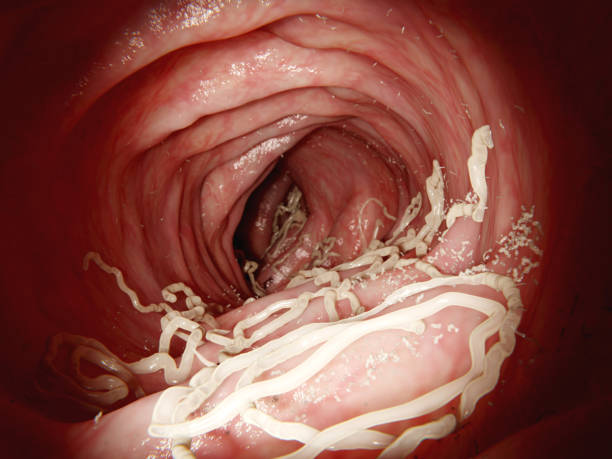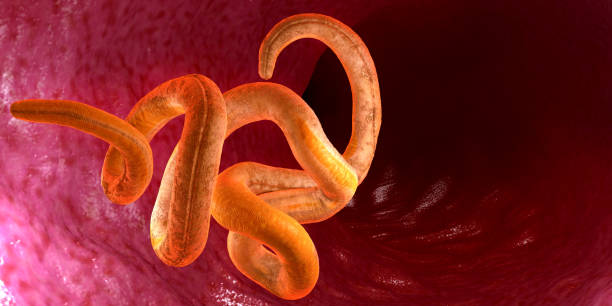Introduction:
Intestinal worms, also known as soil-transmitted helminthiases, are a significant public health concern globally. These parasitic infections affect millions of people, particularly in areas with poor sanitation and limited access to healthcare. In this comprehensive guide, we will delve into the various aspects of intestinal worms, from their causes and symptoms to prevention strategies and treatment options.
Overview of Intestinal Worms
In this section, we will provide a brief overview of intestinal worms, including their types and prevalence worldwide.

Types of Intestinal Worms
Explore the different types of intestinal worms, such as roundworms, hookworms, and whipworms, and their impact on human health.
Global Prevalence
Learn about the geographical distribution of intestinal worms and the communities most at risk of infection.
Causes of Intestinal Worm Infections
Understand the primary factors contributing to the spread of intestinal worms, including poor sanitation, contaminated soil, and lack of hygiene practices.
Transmission Routes
Examine the various ways in which intestinal worm infections can be transmitted, such as through soil, contaminated food and water, and direct contact with infected individuals.
Risk Factors
Identify the risk factors associated with intestinal worm infections, including living in endemic regions, poor socioeconomic conditions, and inadequate access to healthcare.

Symptoms and Complications
Explore the common symptoms of intestinal worm infections and potential complications if left untreated.
Common Symptoms
Learn to recognize the signs of intestinal worm infections, including abdominal pain, diarrhea, fatigue, and nutritional deficiencies.
Complications
Understand the potential complications of chronic intestinal worm infections, such as anemia, malnutrition, and impaired growth and cognitive development in children.
Diagnosis and Screening
Discover the diagnostic methods used to detect intestinal worm infections and the importance of regular screening in endemic areas.
Diagnostic Tests
Explore the various diagnostic tests available for detecting intestinal worm infections, including stool examinations and serological tests.
Screening Programs
Learn about the initiatives aimed at implementing mass screening programs in high-risk communities to identify and treat intestinal worm infections promptly.
Prevention Strategies
Explore effective prevention strategies to reduce the risk of intestinal worm infections and improve overall public health.

Improved Sanitation
Highlight the importance of improved sanitation facilities and hygiene practices in preventing the transmission of intestinal worms.
Health Education
Discuss the role of health education programs in raising awareness about intestinal worm infections and promoting preventive measures within communities.
Treatment Options
Examine the available treatment options for intestinal worm infections, including anthelmintic medications and community-based deworming programs.
Anthelmintic Medications
Explore the different types of anthelmintic medications used to treat intestinal worm infections, their mechanisms of action, and potential side effects.
Deworming Programs
Discuss the importance of community-based deworming programs in reducing the prevalence of intestinal worms and improving overall health outcomes.
Prevention Strategies
Hygiene Practices
Highlight the importance of practicing good personal hygiene, such as handwashing with soap and clean water, to prevent the spread of intestinal worm infections.
Clean Water Supply
Emphasize the significance of access to clean and safe drinking water in reducing the risk of ingesting parasite-contaminated water and soil.
Treatment Options
Follow-Up Care
Discuss the importance of follow-up care and monitoring after deworming treatments to ensure the effectiveness of the intervention and prevent reinfection.

Community Engagement
Encourage community engagement and participation in deworming programs to foster a sense of ownership and sustainability in combating intestinal worm infections.
Conclusion
In conclusion, addressing the challenge of intestinal worm infections requires a multifaceted approach that encompasses preventive measures, effective treatment strategies, and community involvement. By implementing comprehensive interventions focused on improving sanitation, hygiene practices, and access to healthcare, we can mitigate the impact of intestinal worms and promote better health outcomes for affected populations. Intestinal worms pose a significant public health challenge, particularly in regions with poor sanitation and limited access to healthcare. By understanding the causes, symptoms, and prevention strategies outlined in this guide, individuals and communities can take proactive steps to reduce the burden of intestinal worm infections and improve overall health outcomes.



